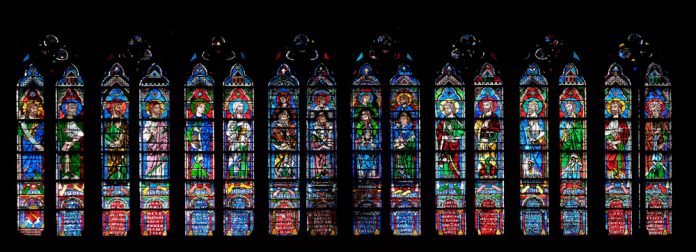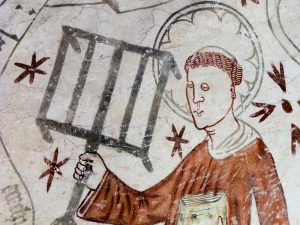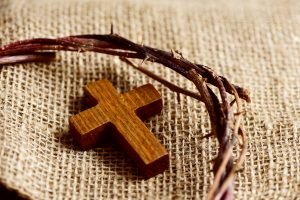
By William O’Leary
Millions of Catholics in the United States and elsewhere are currently are not able to attend Mass and receive Jesus in Holy Communion, due to the pandemic restrictions related to COVID-19. As Catholics, we rely on the Eucharist as our “fuel” to function. It is the “source and summit” of our lives. (See CCC, 1324.) This may even feel as if we have been cast into a spiritual desert! Nevertheless, we should not lose heart at the absence of participating in Mass and the sacramental life directly. Since the beginning of Christianity, Catholics have endured great trials regarding the reception of the sacraments and participating in the life of the Church.
The early church
Participating in the Mass was illegal until the fourth century. Catholics either celebrated underground in catacombs or in homes when a priest was able to be present. However, many of the early Christians went weeks, months and even years without the sacraments and the Mass because they simply did not have access to them. Additionally, early Christians were tortured when their Christian identity was discovered by civil authorities. In

the third century, Emperor Valerian ordered the execution of Sixtus II for celebrating Mass. Another well-known martyr from the early is St Lawrence. He was burned to death on a gridiron when his Christianity was uncovered.
The middle ages
Moreover, several countries banned the practice of Catholicism. In 1559, Elizabeth I adopted Anglicanism as the primary and only faith practiced by the English. (It was over 200 years —1791 — before Catholicism was able to be a legal religion in England!)
In the late 1500’s Fr. Nicholas Owen, S.J., undertook the task of creating hiding places for Catholic priests in homes. If authorities believed the Mass was celebrated in the home, the home could be raided, and celebrants or citizens could be tortured to death. Although Fr. Owen experienced great torture, he refused to give up the location or places where he knew priests were hiding.
In the far east
Extraordinary examples comes from the thousands of Japanese Christians who lived without priests for almost 250 years. Adults and children were baptized, then taught the Catholic faith and learned various devotions — without the ability to participate in a single Mass or receive the other sacraments. Many were martyred. Yet Christians continued to baptized their children in secret, passing down the faith in whispered lessons, and even cultivated a devotion to Mary by disguising images of the Madonna and Child to look like Buddhist images. When Japan finally readmitted Christian missionaries, 10,000 hidden Christians were waiting for them. It wasn’t until 1858 that Japan allowed the Catholic faith to be practiced. Once Catholicism was permitted, 10,000 excited Catholics were eager to attend Mass and participate in the full sacramental life.
What we can learn
 So many faithful Christians laid a foundation for holiness and evangelization without access to Mass and the sacramental life. Some of the trials they accepted even robbed them of their earthly life while others suffered isolation.
So many faithful Christians laid a foundation for holiness and evangelization without access to Mass and the sacramental life. Some of the trials they accepted even robbed them of their earthly life while others suffered isolation.
If we continue to keep an intentional desire to receive the abundant graces that only the sacraments can provide, the Lord will help us cultivates hope and joy in our souls. Let us echo what so many faithful Christians did in generations past: pray daily, make a spiritual communion (daily if possible), and give thanks constantly for the Holy Sacrifice of the Mass.
Let us also give thanks for the reality that the Mass is still able to be celebrated each day — each hour even, around the world — even if our participation is indirect. Even our living rooms can become a sanctuary of holiness as we wait for direct participation in the Eucharist and sacramental life.
William O’Leary lives in Kansas with his wife and three children. He is the Director of Religious Education for a large parish in Overland Park, Kansas. For more than 20 years, his work in pastoral ministry has explored ways to draw parents and their children into the practice of their faith. His blog is RelevantCatechesis.com.
Read more articles about catechesis at home during a crisis.
Image credits:
Top: Zvonimir Atletic / Shutterstock 1086825260
Middle: Stig Alenas / Shutterstock 567676678
Bottom: Into / Shutterstock 381820885




